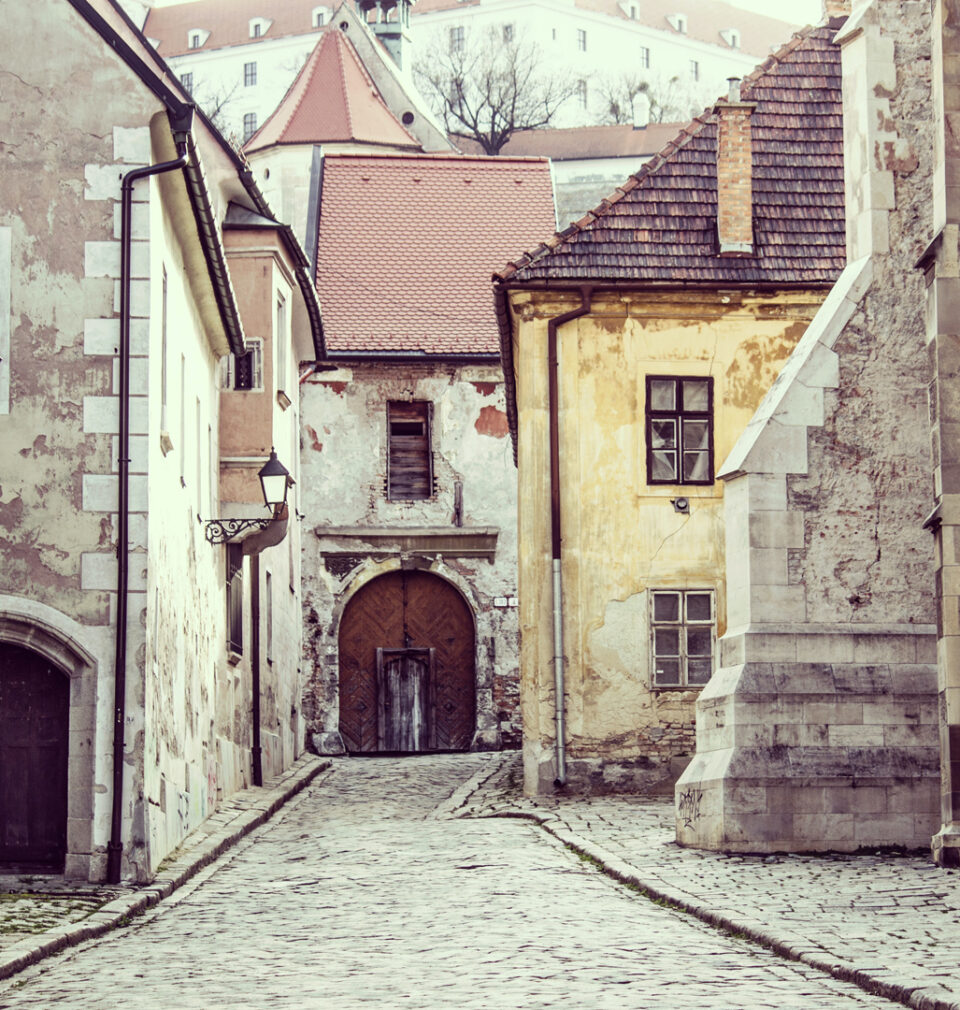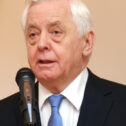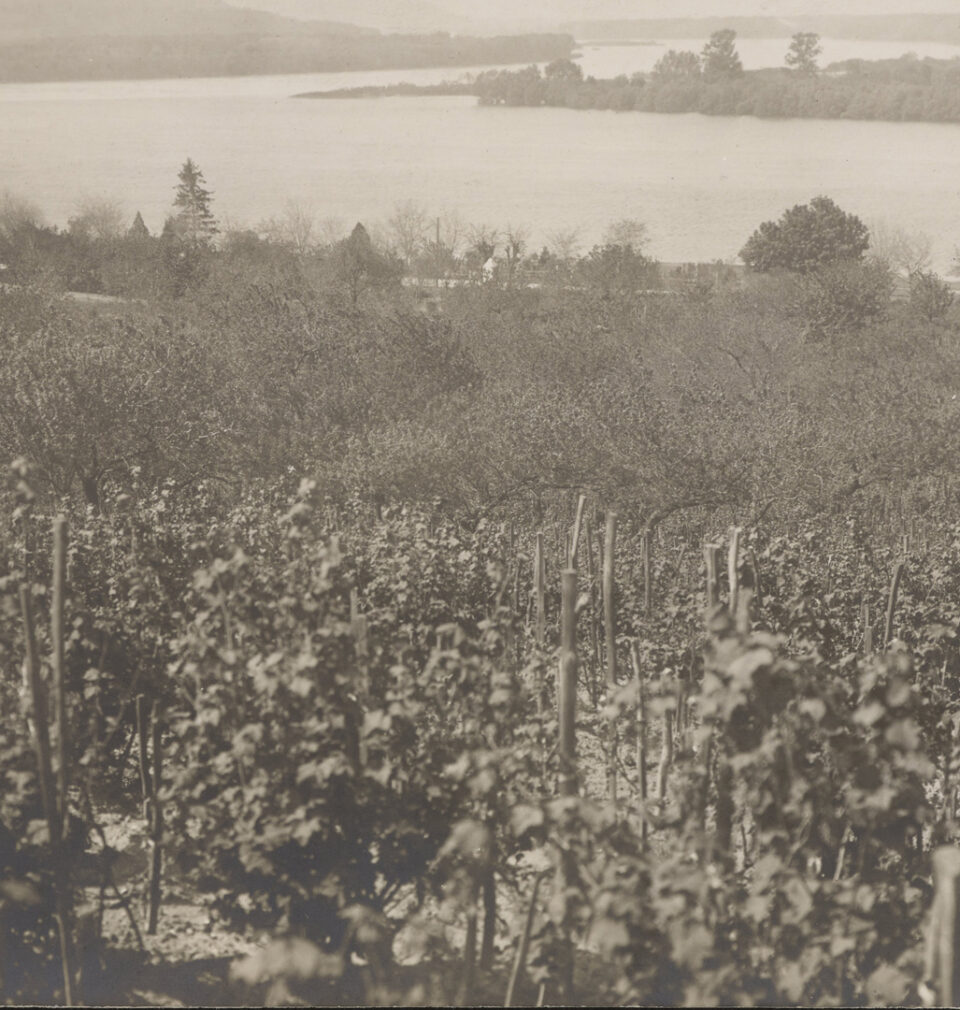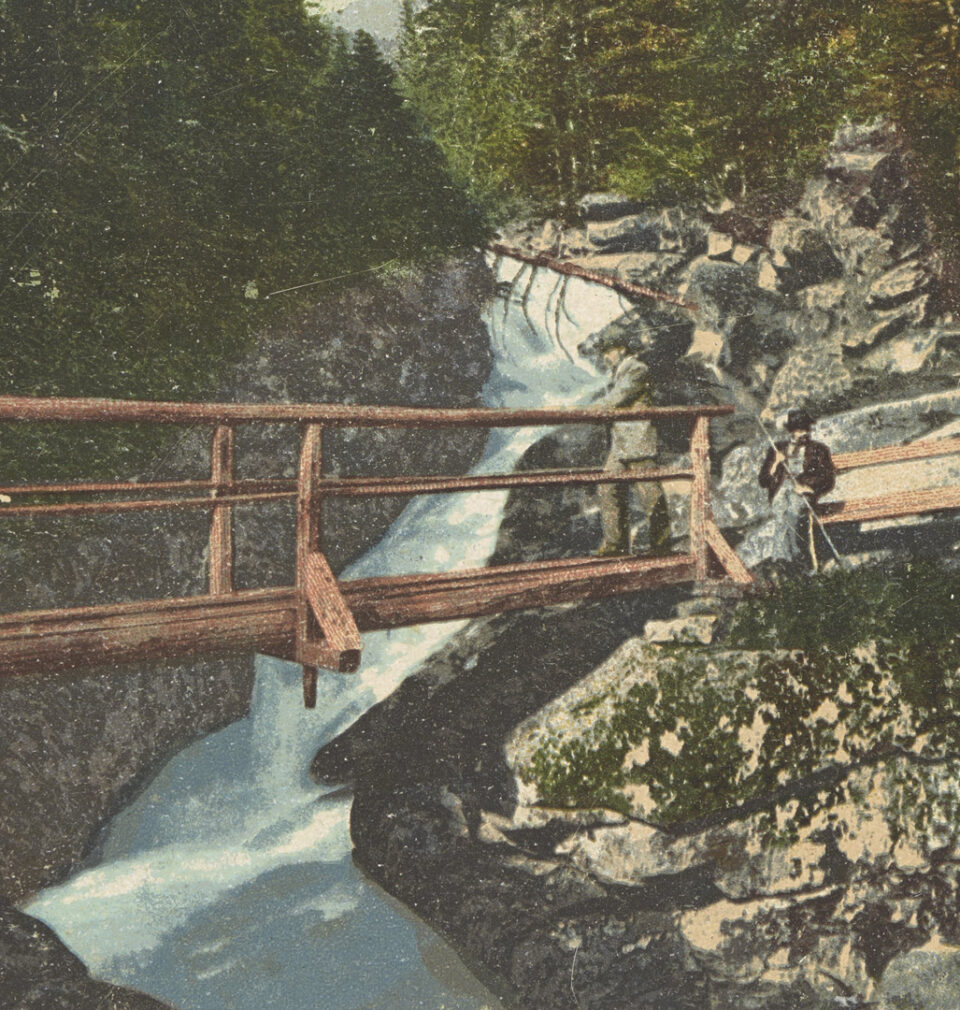
Słowacja - Slovensko - Slovakia
Two Slovakias
Publication: 14 October 2021
TAGS FOR THE ARTICLE
TO THE LIST OF ARTICLESParaphrasing Witold Gobrowicz and using some of his formulations, a Slovak also had to be defended from Slovakia. To be liberated from the narrow, local Slovak reality and make him free and spiritually mature, capable of dealing with history and the world.
“We, the participants of the round table of the Slovak Motherland, appeal to the President of the Slovak Republic, to the future parliament and government, to […] end the polarisation of Slovak society.” This categorical demand to stop the polarisation of Slovak society appears as article five of the declaration issued by participants of the so‑called round table of Slovak intelligentsia held on January 13th 2012, and organised by a social and cultural institution which is evidently anachronous today, although historically very important and with many achievements to its credit – the Slovak Motherland. In other words, an institution which – in an independent state! – is basing its programme on defending the interests of the Slovak nation and creating an impression that it represents one part of this divided society. We should put it more clearly: the Motherland presents a vision of the nation threatened by Hungarians and the Hungarian minority in Slovakia, and attacks anti‑national, not zealous enough and less patriotically committed Slovaks, especially from artistic, academic and intellectual circles highly regarded abroad. The postulate quoted above is just one of ten articles of the declaration, addressed in January 2012 to the winners of the early parliamentary elections held in March – the left‑wing Smer Party and the president supported by it, known as thinking in national terms and feeling in social security terms. The participants of the round table (I assume that they were sitting on one side of it, for they were among their own) – or to put it in another way: those fighting for the rights of Slovaks in a sovereign state (although, luckily, Slovakia is a member state of the European Union) – are speaking to the Slovak intelligentsia, representatives of numerous groups and societies, the Church and political parties: “It is important that the coming elections should be a test of our education, foresight, patriotism and higher feelings for the nation. For its roots, native language, its tradition and culture. It is here that the brotherly love of a Slovak to a Slovak is manifested, that the age‑long national self‑education is attested to. For the Slovak Republic belongs to the Slovak nation and all its citizens.” Hence the defenders of the Slovak Republic claim that “we should protect it, guard its honour and see to it that the role of its deputies and government members would be played by serious, educated representatives devoted to the nation”.
This is how, in the early 21st century but in 19th‑century language (although it seems to me that the vocabulary was richer then), advocates of one Slovakia appealed to the future rules to bring in line (once and for all, if possible) the other Slovakia, still nationalistically passive and slumbering after 22 years of independence. They called for ending the polarisation of society, which they themselves sparked off in the early days of democracy. The Velvet Revolution in late 1989 (in which they took absolutely no part) gave these people (many of them former communists and secret police officers) an opportunity to use nationalist rhetoric in order to transform themselves into eager defenders and guardians of the repressed, threatened nation and to impose a distorted, one‑sided vision, the implementation of which would resolve the problems of Slovak society, pathologically divided. Divided thanks to them.
It would be untrue to say that the declaration of the representatives of this anachronous institution had any significant impact on voters, proletarians and working intelligentsia, to use communist terminology. But it reflects the way of thinking characteristic for some part of society, its mentality – the part bent on isolation, closing, anti‑democracy and authoritarian tendencies; a mentality which of course has its roots in the past. It is true that when the independent state was established in 1993, Slovakia chose above all old, provincial notions, an antiquated, isolationist mentality, on social patterns which soon acquired a simplified label: Mečiarism (owed to the Slovak leader of the division of Czechy‑Slovakia and later prime minister of the Slovak Republic, Vladimír Mečiar; the Czech prime minister was then Václav Klaus, also an advocate of the split). This tendency characterised the Slovak discord for eight years and was only released from its bear‑hug in 1998. The Slovaks, or rather most of them, came to believe by then that the slogan much used until that time, “we don’t want what’s not ours, we won’t give away what’s ours”, led to permanent isolation, to becoming a backwater on the peripheries, not only in Central Europe.
Paraphrasing Witold Gobrowicz and using some of his formulations (from Polish Memories and the novel Trans-Atlantyk), a Slovak also had to be defended from Slovakia. To be liberated from the narrow, local Slovak reality and make him free and spiritually mature, capable of dealing with history and the world. The words of Gombrowicz that “a nation is not just something beautiful and glorious – it is also something dangerous, something you have to be wary of”, seem all the more right. This message, dedicated by Gombrowicz to friends of the old order, which also means to the closed society, unfortunately even today is no less relevant in our part of the world than during times when it was pronounced (in a different historical context).
The aim of this text is not a historical retrospective reaching back to the emergence of modern Central European nations – even if this is where the roots of mental stereotypes and cultural patterns are located. But I will put forward a certain simplification: the founder of the Slovak nation and its national identity, codifier of the Slovak language, builder of national ideology and mythology, the first professional Slovak politician, the great Slovak from schoolbooks, Ľudovít Štúr, injected a number of important elements which later brought more damage than benefits into the structure of Slovak identity. Tsar-loving pan-Ruthenianism, negation of Western liberalism, anti-Hungarianism as well as anti-Polonism stemming from an adoration of pan-Ruthenianism, authoritarianism, anti-Semitism – these are just part of the mental stereotypes, which for 150 years were slumbering or perhaps hidden in the deep layers of the collective subconscious, to come back with a vengeance after 1989 – during times of freedom! Although it would be easy to find analogies in Central Europe (Polish and Hungarian), if we stay within the small Czech-Slovak world, the phobias named above will be much more pronounced in Slovakia (in the Czech Republic after 1989 a similar problem resounded in the relationship “Czechs versus Germans”, and today on “the koruna versus the euro” level, or perhaps in the context of ratifying the Lisbon Treaty, assessing the functioning of the European financial mechanism and aid for countries particularly affected by the crisis).
The organisers of the round table of the Slovak Motherland undoubtedly referred to the historical stereotypes described above, although above all to the ideology of the desired national unity, which dominated in the Slovak state during the Second World War. To quote Ernest Renan, the late 19th‑century French expert on the subject of nations, I believe that “unity is always a result of restrictions”. Also, the guardians of the nation apparently dream of such a unity, in the name of collective and state (and hence government) paternalism, constraining the autonomy of individuals and minorities. They also encourage the rulers to make other “demands”: for nationalism to become a renewal programme of the future government, featuring – without beating about the bush – exclusively tested “representatives devoted to the nation”. It brings to mind the actions of the late radical, István Csurka, who wanted to verify the Hungarian pedigree of citizens by way of blood analysis. He soon found Slovak followers, who would be most happy to “study” the genealogical tree of “not zealous enough and less patriotically committed” artists and intellectuals.
The good old fellow-traveller of all totalitarianisms, nationalism, the ideology of a closed society, reached the peak of its popularity in Slovakia quite recently: in 1993, when the independent state was built. Its founders wanted everyone to be happy with independence – even if it was not based on purely democratic foundations but on personal interest. I mean here the privatisation or rather the theft disguised as privatisation, with the incredibly huge and not very transparent ownership transfers, in practice meaning a distribution of government property based on personal decisions. This process led to the emergence (what a neutral word to define this barbarity!) of modern aristocratic families, financial empires and even the mafia. One of the retired national veterans described this phenomenon with another graceful, neutral and euphemistic term: the emergence of the Slovak capital‑generating class. During the pioneering privatisation of the late 1990s, the Hungarian sociologist Iván Szelényi openly spoke about a huge bank robbery. He found it impossible to believe that privatisation was not controlled by the new political elites, which, according to him, had struck an alliance with a significant part of the old, mainly communist, economic elites.
Privatisation was accompanied by the process of Slovakia becoming mono-ethnic, although national minorities, rightly anxious about being legally deprived of their identity, still constitute more than 15 per cent of citizens. The majority, which did not take a direct part in appropriating the national assets, was thrown some scraps, which it could fill its stomach with and ignore its poverty. National collectivism was built on fears concerning the nation, territory, borders, minorities – all this became a fertile ground for prejudice, traumas, inhibitions as well as populism, fed to the people in a masterful way. When the people woke up from the allegedly epoch-making dream, the national assets had been privatised, that is stolen. The people had become poorer, and the state richer. And then a national pastime was offered: fighting the anti-national Slovaks and Hungarians, building a nation-state despite the multi-ethnicity of society, creating a closed society. The fact that citizens voting for Vladimír Mečiar (who in the meantime vanished without a trace) accepted this rhetoric does not surprise anyone. The fact that the social-democratic Smer was singing to a nationalist tune until the 2012 elections, is not something the Slovak Left should be proud of (leaving aside its proletarian and internationalist pedigree). With more than a little help from nationalist populism, Smer became the leading political force in Slovakia, which undoubtedly is a matter worthy of a separate reflection.
Another thing requiring a separate analysis is the provocation of anti‑Roma feelings. This development is the flip side of racist populism, wrapped up in a repressive social agenda. It is presented by some Slovak right‑wing parties with silent approval of the Left. Lack of respect for human rights is only a side effect of this worldview, where the two parts of the divided Slovakia – with minor exceptions – find mutual understanding.
This left‑wing nationalism attracted my attention when I served as deputy prime minister for human rights and ethnic minorities. In the Summer of 2011, I introduced in parliament an amendment to the law on the languages of ethnic minorities, aimed at expanding their use in line with European standards. The Smer deputies – Social Democrats – exhibited a significant dose of intolerance. Their behaviour may only be compared to the excesses of the radical nationalist party, the Slovak National Party (Slovenská národná strana), invited by Smer four years ago to the government coalition. I invoke this only seemingly personal experience in order to explain that until 2012, left‑wing policy in Slovakia had a nationalist, anti‑European bent and manifested a marked isolationist tendency. It changed (after “consultations” with Western European partners, as well as a result of the economic crisis) just before the recent elections. Not only for these reasons is it very doubtful whether these changes were credible and natural. But are there any credible things in politics?
In Slovak history a tradition of a closed, non-democratic, totalitarian model of society always dominated. The principal reason was that the development process of Slovak society was always accompanied by a constant feeling of insecurity, more in the national than the social sense. This feeling was to support the unity, cohesion of the nation, meaning its isolation. The totalitarian themes in Slovak history, fascist and communist, virtually removed the word “pluralism” from Slovak vocabulary. The world-renowned great Slovak linguist and Slavist, Ľubomír Ďurovič, an advocate of open Slovakia (it was no accident that he spent half a century in exile), very aptly defined our 20th-century problem. He said that “the ideal of national integrity and unity is very prestigious”, as witnessed by the nature of Slovak historiography, folklore, art, practices of numerous churches etc. To disrupt this unity is “in our awareness something reprehensible”. In 1984 Ľubomír Ďurovič repeated that “the way to a renewal of democracy leads through a renewal of the integrity of an individual” like a mantra. Decades later this claim is as relevant and true as ever.
It is only seemingly a paradox that when after 1989 we were to climb the train of open society journeying towards a renewal of democracy, the above-mentioned fellow traveller of all totalitarianisms and nationalism, entered the stage. This is not confined to Slovakia, as the countries of Central Europe have much in common with each other: historical traumas, mutual isolation or to be more blunt, conflict, aversion or antipathy for their neighbours, the problem of minorities, conflicting ways of assessing the common past, collective efforts at ethnic domination limiting the freedom of individuals and minorities, etc. Ethnicity, nationalism, religion and identity politics – these are of course integrating but also divisive factors; they create an image of the enemy, they cannot bear disappointments, and they require faith. It is perhaps for this reason that, for many former communists, the 1989 transformation proved remarkably easy: they traded one “faith” for another, which in our country had the advantage that nationalism became part of the privatisation processes described above. Whoever held power (proponents of Mečiarism and their likes), pronounced himself to be a national or, in the parlance from that period, a pro-national person. In the end, he became not only national but also rich. And of course he didn’t need the nation any more.
The other part of society (the open, democratic one) perhaps did not protest against the independent state (although it wanted to live in a more competitive Czech‑Slovak environment) or the nation as such, but criticised its “founding fathers” and executors of privatisation. To put it more clearly, it protested against the regime, the non‑democratic regime of Mečiar. Those who rejected this regime will always live under the suspicion that they are not national enough or simply anti‑national, even if Mečiar and his privatising team have long been on a “well‑deserved” vacation. Because in that period the nascent democracy in the newly founded Slovak state had many gaps, nationalism became an important integrating factor for society. Democracy still remains the only method of taking control of nationalism. But in the founding era democracy was very restricted and distinctly marked with state terror. Identifying with such a state was extremely difficult and painful.
The nation state established in 1992 gravitated towards nationalism, and this meant that the idea of open society only gradually seeped through. In addition, the institutions which protested against open society’s influence in the spheres where it was irreplaceable, found it very hard to have their voice heard in the public space. Thanks to non-governmental organisations, which still form an important factor in building the open society, after 1998 we managed to introduce a number of changes and hold back the impact of the state (that is Mečiarism), or to be more precise, of some part of it: the second, closed Slovakia. Social pressure produced by these changes was the actual victory of open society. Under this term, Karl Popper meant a model where those in power are replaced quickly and without harmful consequences, without power struggles and taking on new guises by lots of people. Open society is also based on protecting all minorities, as well as individual rights and liberties – which means that minorities may easily become the majority. This constitutes the appeal of democracy and of open society in particular. And this is the continuous message for the democratic, open although still marginal Slovakia.
Both communities, currently functioning in Slovakia separately, until now have luckily avoided a collision. Slovak society generally ignores them, for this subject does not provoke such heated emotions as it did in the 1990s. Today, in the era of consumerism, tackiness, commercialism and soap operas, people are indifferent to such themes. Neither are they interested in clashes between mythical and scholarly interpretations of history, where this dichotomy is probably the most pronounced. But who is interested in the moral condition of society (many people don’t even care for the exchange rate of the euro), democratic, respecting human rights? Who cares about the apathy in which we live? The most important thing is for the president and the government to end the polarisation of society, which doesn’t even know it is divided, although most people know they their standard of living is much below the European average. However, the fate of the national capital‑generating class has taken a different course.
The nation is pre‑occupied with such matters and although this is something we should be wary of, we can hardly blame the people for such a way of thinking.
Copyright © Herito 2020



